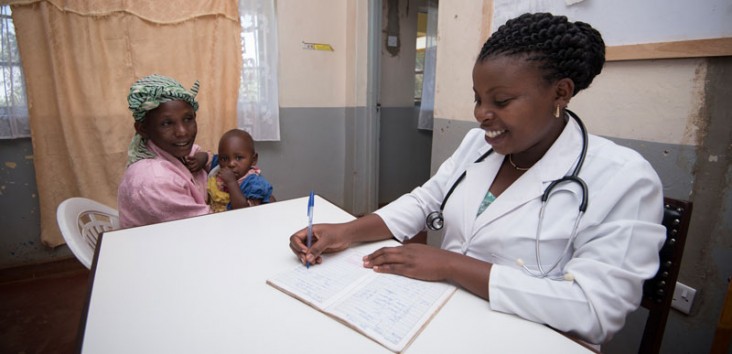![]()
Information released online before January, 2021.
Note: Content in this archive site is NOT UPDATED, and external links may not function. External links to other Internet sites should not be construed as an endorsement of the views contained therein.
You are entering the 2017-2020 Archive for the
United States Agency for International Development web site.
If you are looking for current information, visit www.usaid.gov.

The Monitoring and Evaluation to Assess and Use Results (MEASURE) Evaluation Phase IV Project builds on the decades-long commitment by the Bureau for Global Health to support health sector monitoring and evaluation and country health information system strengthening. The project is designed, in part, to further efforts of the U.S. Agency for International Development (USAID) to end preventable child and maternal deaths (EPCMD) by assisting partner governments and institutions to generate and make use of high-quality health systems data that can be used to guide decision-making on effective interventions.
The strategic objective of the MEASURE Evaluation Phase IV Project is to enable countries to strengthen national, community, and facility-based systems to generate high quality health information that is used to inform decisions on policies, programs, and resource allocations at all levels of the health system.
To achieve this goal, MEASURE Evaluation Phase IV focuses on four intermediate results, or expected outcomes:
This phase of the project places particular emphasis on health information system sustainability and leverages previous work that emphasized country ownership local capacity-building for implementation of rigorous evaluation. MEASURE Evaluation Phase IV builds on more than 2 decades of results in strengthening data collection systems, innovation in research and research tools, mentorship programs, results sharing and synthesis, fostering leadership, and program and policy evaluation.
In Year One of Phase IV (2014–2015), the project:
The MEASURE Evaluation Phase IV Project is a worldwide, 5-year, $180 million cooperative agreement extending from July 2014 to June 2019. The project is led by the Carolina Population Center at the University of North Carolina at Chapel Hill in collaboration with ICF International, John Snow, Inc., Management Sciences for Health, Palladium, and Tulane University School of Public Health and Tropical Medicine.